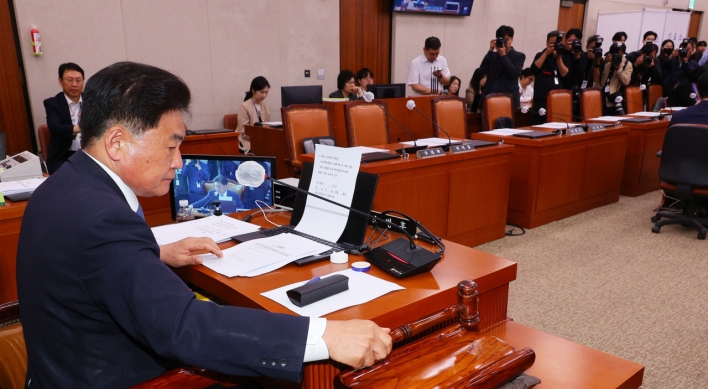[THE INVESTOR] South Korea’s leading internet technology companies are planning to grant local smartphone users an option to refuse mobile gift certificates sent by a third party within this year.
Korean IT firms which operate mobile gift-giving and exchange platforms such as Kakao, SK Planet and KT Mhows said Sunday they will soon add such features to their services.
The companies say that the decisions were made to enhance user convenience. But industry watchers suggest that a new antigraft law that takes effect from Sept. 28 may have pushed the move.
Kakao, which runs the country’s leading mobile messenger KakaoTalk, told The Korea Herald on Sunday that it plans to introduce by the year’s end a new button that enables users to choose whether to accept or refuse mobile gift certificates they receive via KakaoTalk.

“It was already possible for KakaoTalk users to refuse mobile gifts, but we decided to add the new feature to make the process easier and more convenient for our users,” said Kakao spokesperson Yoon Seung-jae.
Until now, KakaoTalk users could refuse any mobile gifts sent to them by calling the customer service center. Home-delivery gifts were also automatically refunded to the sender if the recipient did not type in a receiving address within seven days, he said.
SK Planet and KT Mhaus, which also operate mobile gift service platforms, are in talks with the Ministry of Science, ICT and Future Planning over adding a similar function that allows users to refuse mobile gift certificates, according to local news reports.
“We began discussing (this new option) in response to rising consumer complaints that they could not give back to the sender mobile gifts they could not receive for whatever reason,” a ministry official was quoted as telling Yonhap.
In response, some industry watchers have pointed out that the IT firms appear to be bracing for the impact of the new antigraft law on its mobile gift commerce business.
The Improper Solicitation and Graft Act -- or the Kim Young-ran law, named after its initiator and the former chief of the Anti-Corruption and Civil Rights Commission -- bans Korean civil servants, elected officials, journalists and officials of private education institutions from receiving free meals, presents or monetary gifts over certain price limits.
Under the new law, mobile gifts sent via mobile messengers and text messages, would be considered a form of a gift -- which users could not voluntarily refuse under the current e-commerce system.
However, Kakao said its new function simply aims to enhance user convenience and address new market needs, and holds no direct ties to the antigraft legislation, stressing that gift cancellations were always possible on its platform.
By Sohn Ji-young/The Korea Herald (jys@heraldcorp.com)










![[Kim Seong-kon] Democracy and the future of South Korea](http://res.heraldm.com/phpwas/restmb_idxmake.php?idx=644&simg=/content/image/2024/04/16/20240416050802_0.jpg&u=)







![[Today’s K-pop] Zico drops snippet of collaboration with Jennie](http://res.heraldm.com/phpwas/restmb_idxmake.php?idx=642&simg=/content/image/2024/04/18/20240418050702_0.jpg&u=)